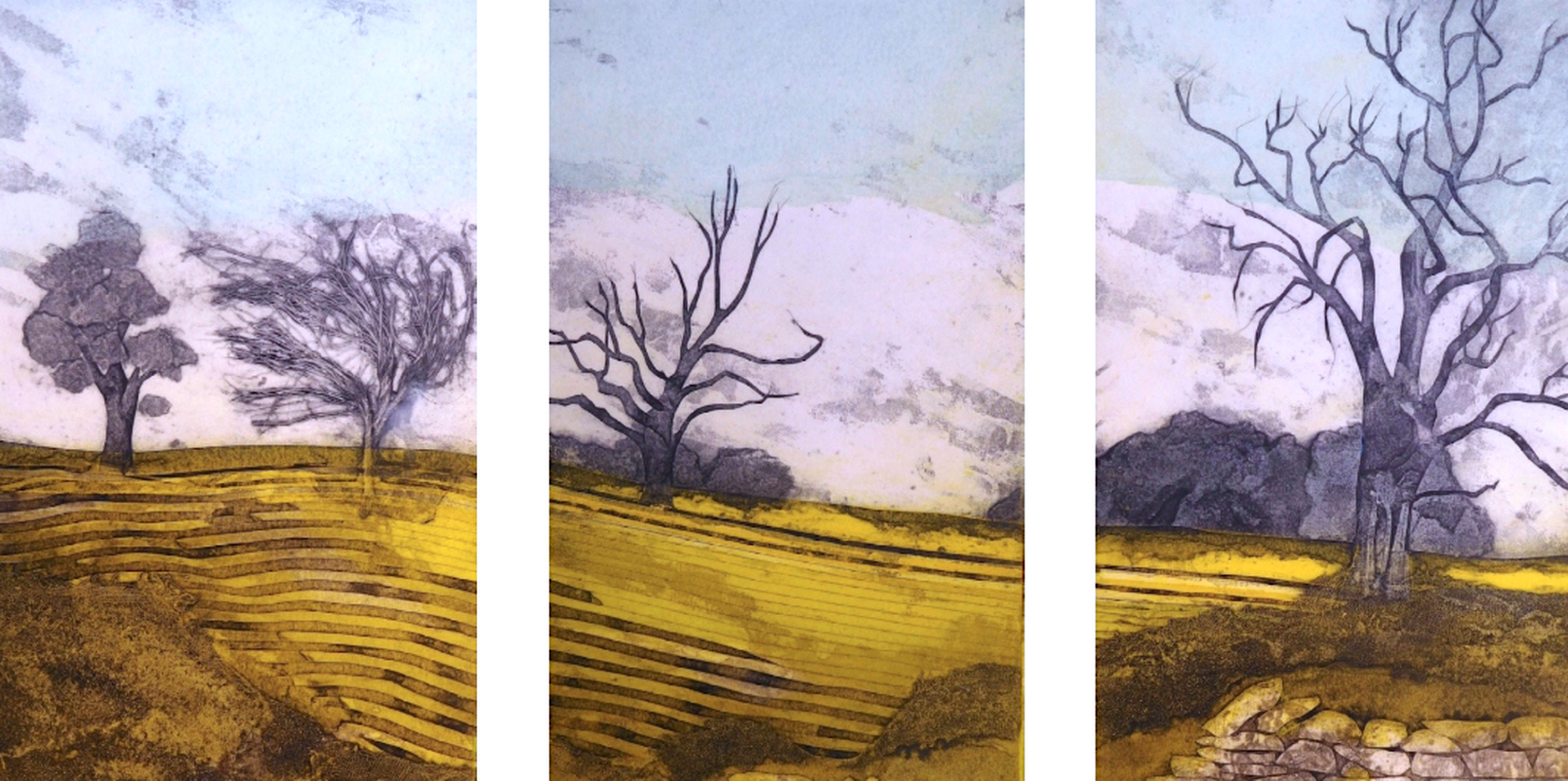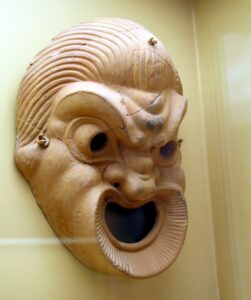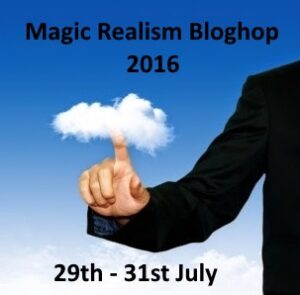
SARAH ROSS-THOMPSON AND THE ART OF COLLAGRAPHED PRINTS
I interviewed artist Sarah Ross-Thompson whose exceptional Collagraphed prints use fabrics, lichen, porridge and string to create images of the dramatic Scottish Highlands where she

‘And the task of writing is to hang on tight, like Menelaus, till the god gives up, stops trying to throw his rider, and becomes his true self.’

In my imaginary autobiography I’m sneaking between fences along an overgrown passageway between 50s suburban back gardens. I’m shaky inside as I step around orange fungi and fat-bodied spiders while poking sticks into webs. Part of me is watchful, an undercover agent observing neighbours through gaps in the fence, and part of me is hot and sweaty, sniffing out a trail.
In another scene I’m by the house with an old wooden chair that I’ve been told to break up. It’s my chance to let it have it, full force. The chair’s in my power, so I twist and wrench it, exercising my will. There’s a beast inside me, a smasher and basher who does what he likes and enjoys what he can do.
At other times in the story I’m a ghost and I walk through walls. This allows me to live in unseen worlds, overhearing chatter in houses and listening in to talk in school playgrounds. I can tune in to friends as they speak and be there with the neighbours at any time of day. I can even enter the heads of strangers, living their lives as an unseen watcher…
 For years I was planning my imaginary autobiography. I wanted to find words for the baroque and the surreal hidden inside suburban living, the prisoner at the window, the digger of tunnels and the boy who could soar and turn cartwheels over roofs. But my crazy memories didn’t transfer well to paper. They were states of being rather than anecdotes, they didn’t build or develop, and they were too absurd to appear in a conventional autobiography. I needed entertaining incidents that went somewhere and what I had was a collection of static tableaux.
For years I was planning my imaginary autobiography. I wanted to find words for the baroque and the surreal hidden inside suburban living, the prisoner at the window, the digger of tunnels and the boy who could soar and turn cartwheels over roofs. But my crazy memories didn’t transfer well to paper. They were states of being rather than anecdotes, they didn’t build or develop, and they were too absurd to appear in a conventional autobiography. I needed entertaining incidents that went somewhere and what I had was a collection of static tableaux.
I think of them now as defences. As an only child I was a lonely, over-protected boy who lacked confidence. There was a space around me, an absence of love or relatedness, and the fantasies were an outlet for my pent-up feelings. I was also sneaky. I thought people would laugh if they read about my ‘real’ thoughts and I wanted to avoid the critical parental eye. So I made my words tediously elaborate, straining for effect, or crafted low-key indirect ‘poetic’ versions of MY LIFE – but neither rang true. It’s hard to write about essence or deep subjectivity and, linguistically, the subject I’d chosen was as impossibly silly as my dreams of walking tightropes or scaling cliffs.
What I also didn’t realise was how much editing any written piece requires and how an esoteric subject demands even more work.
![Proteus-Alciato[1]](https://leslietate.com/wp-content/uploads/2017/12/Proteus-Alciato1.gif)
The film cuts suddenly to a suburban bedroom where I’m lying awake in bed making seal-like noises. Awru, awru I bark, flapping my hands, till my father bursts in, ordering me to sleep. At that point the waves rise up and the film ends. Next morning I’m absent, flown in spirit from my body, while the person I imitate eats breakfast, gets washed and dressed and walks out into the garden to hide behind fences.

Looking back at that child and at what I’ve written, I think the presiding spirit of my Imaginary Autobiography is Proteus, the sea god, who changes into something different every time his questioner tries to grasp him. These shape-changing transformations, which Pessoa called heteronymity, resemble the masks of Comedy and Tragedy at a Greek drama. And the task of writing is to hang on tight, like Menelaus, till the god gives up, stops trying to throw his rider, and becomes his true self.
These words are the result.
ABOUT LESLIE TATE’S BOOKS:

I interviewed artist Sarah Ross-Thompson whose exceptional Collagraphed prints use fabrics, lichen, porridge and string to create images of the dramatic Scottish Highlands where she

Part 2 of my interview with Mark Statman looks closely at Mark’s Latin American poetic influences, his life in Mexico and ends with an extract

I interviewed international poet and translator Mark Statman about Volverse/Volver, his 14th published collection. Mark, who has won national arts awards, is Emeritus Professor of Literary

I interviewed Lisa Dart, finalist in the Grolier, Aesthetica and Troubadour Poetry Prizes and author of The Linguistics of Light (poems, Salt, 2008), Fathom (prose

I interviewed writer Julia Lee Barclay-Morton about her experience of autism. Julia began as an experimental dramatist in New York, moving to the UK to
| Cookie | Duration | Description |
|---|---|---|
| cookielawinfo-checkbox-analytics | 11 months | This cookie is set by GDPR Cookie Consent plugin. The cookie is used to store the user consent for the cookies in the category "Analytics". |
| cookielawinfo-checkbox-functional | 11 months | The cookie is set by GDPR cookie consent to record the user consent for the cookies in the category "Functional". |
| cookielawinfo-checkbox-necessary | 11 months | This cookie is set by GDPR Cookie Consent plugin. The cookies is used to store the user consent for the cookies in the category "Necessary". |
| cookielawinfo-checkbox-others | 11 months | This cookie is set by GDPR Cookie Consent plugin. The cookie is used to store the user consent for the cookies in the category "Other. |
| cookielawinfo-checkbox-performance | 11 months | This cookie is set by GDPR Cookie Consent plugin. The cookie is used to store the user consent for the cookies in the category "Performance". |
| viewed_cookie_policy | 11 months | The cookie is set by the GDPR Cookie Consent plugin and is used to store whether or not user has consented to the use of cookies. It does not store any personal data. |
15 responses
Leslie, I so enjoyed this sweet, revealing peek into your life, your mind, your soul … “I wanted to find words for the baroque and the surreal hidden inside suburban living, the prisoner at the window, the digger of tunnels and the boy who could soar and turn cartwheels over roofs.” I agree, writing about deep subjectivity is probably harder, but it’s so satisfying, isn’t it?
One of my projects, Robin, is to write prose where, in Auden’s phrase ‘nothing happens’.
While, at the same time, ‘everything happens’! Non-narrative prose about states of being rather than doing.
This was fun to read because it seems oh-so-familiar.
Thank you Malcolm. I’m still that child, but I have the adult distance to look at myself in the mirror and smile.
What a lovely journey. I don’t know if I can agree with you that nothing happens…as it seems so much happens to this child in this just bit of a reveal. What a wondrous children’s book this would make, and what brilliant illustrations! I truly hope you, at some point return to this original seed. I believe it is worth sowing.
Ah, thanks so much, Leigh. I was grappling with the paradox that there is no conventional narrative development (plot + characters + twists). Actually, time stands still. But, of course, it’s the eye of the hurricane and paradoxically in your words ‘so much happens’. It’s part of a number of blogs on childhood and the series, together with new material, is going to be published as Lyrical Essays by TSL. Thank you again.
Wonderful read, Leslie!
And what astounds me is that there are so many similarities! Proteus, being the God of Change he is, even sneaked into my novel . . . What would the world be without the good old Greeks???
Thank you Bianca. I find Jungian interpretations and the Greek Myths themselves endlessly instructive in a way that goes beyond words.
Hey Leslie, I think a shapeshifting protagonist is a great idea. If you could work it into an autobiography that would be really interesting. This was a very inspirational post. Thanks!
That’s very kind of you, Justin. Thank you.
Hello Leslie,
Thank you for this lovely poetic contribution to the blog hop. It reminds me of my childhood.
I look forward to your contributions to the Magic Realism Books Facebook group. BTW there is a private writer’s group too, let me know if you want to join. I have just shared something Jungian over there.
Hi Zoe, I’m particularly pleased that you enjoyed it because you were the person who made the Magic Realism Bloghop happen. So, thank you!
Seems like we’re only really alive, as kids, when we’re fantasizing about being someone or something else. And I guess that’s true for a lot of adults, too. 🙂
Great post, Leslie!
Yes, we live through our imaginations… Thank you Lynne!